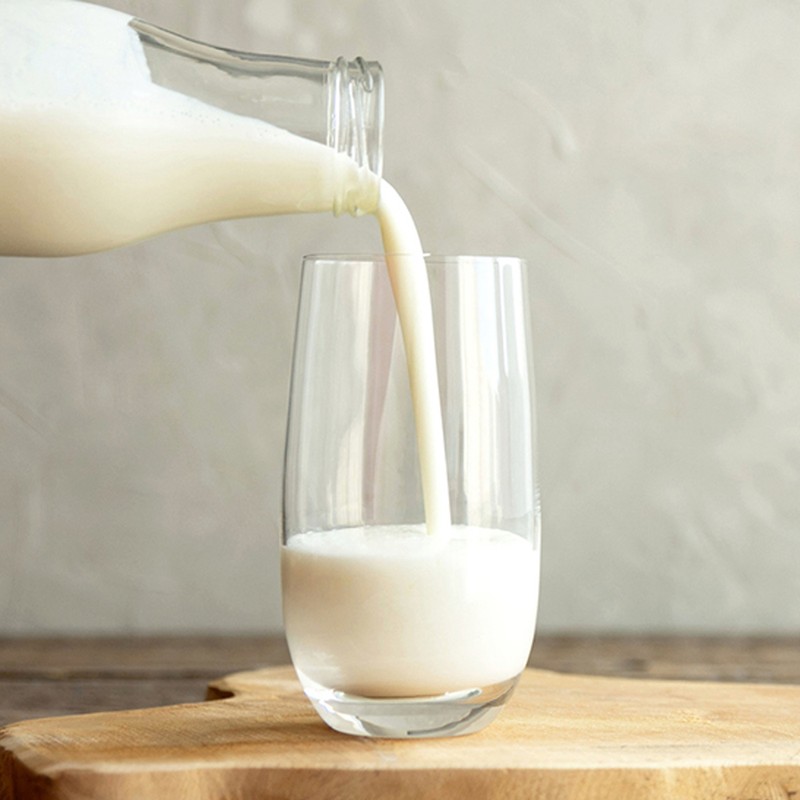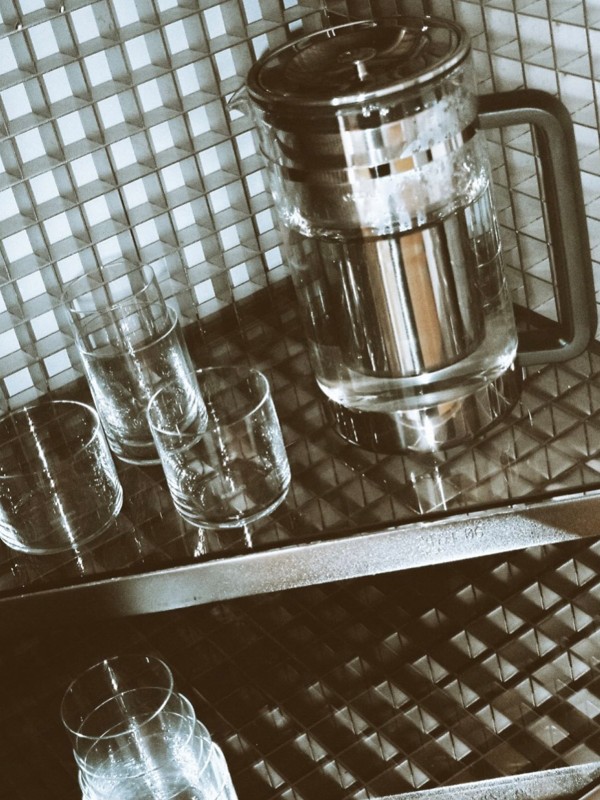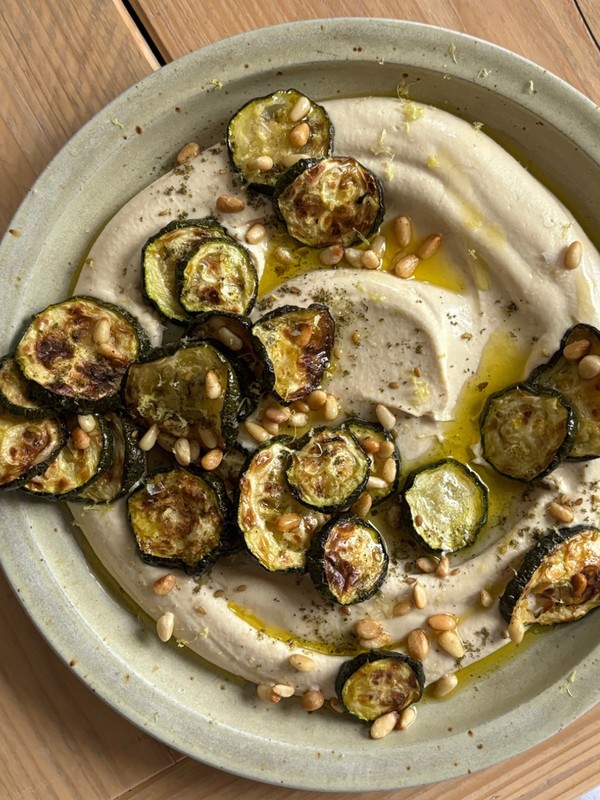Is Dairy Really Bad For You?
When did dairy become so controversial?
It’s safe to say that, as a nation, we’ve fallen out of love with dairy. The average person’s milk consumption in the UK has fallen 50% since the 1950s, most recently in favour of ‘alt-milks’ – think almond, oat, rice and soya varieties. Whether it’s for health issues (countless studies have linked dairy to inflammation, skin issues, high cholesterol and allergies), animal welfare, ethical food production or the future of the planet, it’s no wonder we’re turning our backs on the white stuff. In a nutshell, many of us have lost faith that drinking milk is doing us, and the planet, any good.
Have we really become more sensitive to dairy over the years?
Nutritional therapist Jodie Brandman, who is staunchly anti-dairy, believes this is the case. “Firstly, the quality of milk is different to what it was years ago – cows can be fed on grains instead of grass due to mass production, which isn’t natural, plus they’re given hormones and antibiotics, which subsequently affect our bodies. Then, we have the fact that we are experiencing more stress and toxins than ever before, which is changing our gut health and how we process certain foods,” she says. Jodie argues our bodies are in a state of inflammation more than ever before and that this highly processed, unnatural milk is just adding to the load. Registered dietitian Laura Tilt, however, is a little more dubious. She claims levels of dairy intolerance aren’t actually on the rise, more that we’re becoming more conscious of what we’re eating, and are subject to misinformation on the subject of food intolerance.
What are the signs you’re dairy intolerant?
“Symptoms of lactose intolerance occur within a few hours of eating a food containing lactose – a milky drink, for example,” Laura says. “Common symptoms include wind and bloating, tummy cramps, feeling sick and loose stools.” However, Laura says a genuine dairy intolerance is less common than you may think. “Lactose intolerance is a condition where someone can’t digest lactose due to a deficiency of an enzyme called lactase, which breaks down the sugars from milk into a form our bodies can absorb. It’s thought to affect around 5% of the British population, but this varies across ethnic groups – up to 75-90% of people from African, Hispanic and Asian backgrounds are thought to have some degree of intolerance.”
Does dairy really cause inflammation?
The science is mixed, but studies suggest it could ultimately come down to the individual. As Laura says, “Many foods, not just dairy, have been loosely linked with inflammatory processes and this often leads to their unnecessary demonization. It is possible there are individual differences in the way people respond to dairy, and other foods.” Laura also comments on a 2017 study, which found dairy intake was actually associated with anti-inflammatory activity. Jodie, on the other hand, believes dairy can trigger inflammation and exacerbate issues like hayfever, skin health, autoimmune conditions and reproductive health. “Studies have suggested milk can lead to inflammation in the gut, especially if someone has issues with gluten. There is a lot of research around histamine too, which is a protein released from immune cells. Dairy can stimulate these cells to release histamine, explaining why it can cause problems with our immune system.”
Are some forms of dairy better for you than others?
Yes – it all comes down to how products are produced. As Tali Eichner, dairy manager at Old Plaw Hatch Farm explains, “There’s a great difference in the qualities of milks that you don’t see from the label on the bottles. The breed of animal, what they eat and their health and lifestyle are all reflected in the milk. For example, a traditional breed of cow fed their natural diet will produce more nutrient-dense milk but less of it than a modern cow that’s fed concentrates. It’s also been shown cows kept outside produce milk with higher levels of vitamin D than cows kept inside.”
Similarly, Sam Murphy, co-founder of Ki Kefir, believes dairy, and especially kefir, can be one of nature’s superfoods, especially when it comes to gut health. “The most nutritious milk is produced by organic, grass-fed cattle which are free to roam. Raw milk, cheese and butter that come from such farms are great choices, as is kefir, which is fermented. Fermentation means the milk is exposed to yeasts and bacteria, which increases the diversity within the milk and undoes the damage done through pasteurization (this is done to all mass-produced milk and is a measure designed to improve safety and shelf life but strips away gut-friendly bacteria). Kefir is packed with vitamins that are crucial for the optimal health of organs and bones and can help restore the gut microbiome. The bacteria in kefir also consumes hard-to-digest lactose and casein, allowing those who usually struggle with dairy to drink it.” Tali says the same of Plaw Hatch Farm’s biodynamic, raw milk, saying she regularly receives feedback from customers who thought they were lactose intolerant but can drink their milk without any adverse reactions.
What about dairy alternatives – how do they compare nutritionally?
If you’re one of the millions of Britons who’s traded their usual pint of milk for Oatly, it could be worth drinking more of the white stuff, especially if you aren’t dairy intolerant. As Laura explains, “Plant milks are not a direct substitute for cow’s milk. Almond milk is mostly water – low in calories, protein and just about everything else. Soya milk is nutritionally the most similar to cow’s milk, but without fortification contains little calcium, iodine or B vitamins. Oat milk is a good source of carbs and unsaturated fat, but low in protein and other vitamins. Similarly, rice milk has a lot of carbs but hardly any protein.” Remember a glass of cow’s milk provides around 30% of your daily calcium, 74% of vitamin B12 and 40% of your iodine needs. “Whilst the protein missing in plant milk can easily be found elsewhere, these other nutrients are harder to replace,” stresses Laura. “Swerving dairy won’t necessarily leave you deficient in these nutrients, but you need to consider what else you’re eating to avoid potential problems. If you are choosing plant milk, always choose one with added calcium and iodine,” she advises.
What should you look for when buying dairy products?
The higher the quality, the better. Sam recommends buying milk that comes from biodynamic farms, but if you don’t live within distance of a farm or farmers’ market, then organic, full-fat and unhomogenized milk will increase your chances of avoiding pesticides and hormones. Sam also advises looking out for raw, unpasteurised cheeses, which are also packed with nutrients. Tali also recommends looking beyond the supermarket shelves – Farms To Feed Us lists some of the UK’s highest quality producers who supply Michelin-star restaurants and are now delivering direct to consumers. “Look out for Demeter (biodynamic) and organic certified products, as that signifies the animals are fed a grass-based diet, with no pesticides or herbicides. If you’re interested in trying raw milk, which is nutritionally superior and tastes completely different to the milk you buy in the supermarket, the Raw Milk Producers Association has a map of farms,” she says.
The bottom line?
Unless you’re allergic to dairy, it could be worth switching up your standard supermarket milk for a better-quality version before you rule it out altogether. As Laura adds, “Until we have evidence to suggest otherwise, there’s little reason not to recommend dairy. Most people can, and do, benefit from having it in their diet – it provides 30% of the UK population’s calcium intake, and thus plays an important role in bone health. Plus, in 2018, a large study found higher intakes of dairy were associated with a lower risk of heart disease. Other studies have found positive effects of dairy consumption on body weight, too.” Like all foods, it comes down to quality, and moderation.
Laura Tilt is the co-author of The Happy Gut Guide and creator of The Gut Loving Podcast. For more information visit LauraTilt.com. For more information on Jodie Brandman, visit JodieBrandman.com. Ki Kefir delivers across the UK; visit KiKefir.com, and to find out more about Old Plaw Hatch Farm, see PlawHatchFarm.co.uk.
*Features published by SheerLuxe are not intended to treat, diagnose, cure or prevent any disease. Always seek the advice of your GP or another qualified healthcare provider for any questions you have regarding a medical condition, and before undertaking any diet, exercise or other health-related programmes.
DISCLAIMER: We endeavour to always credit the correct original source of every image we use. If you think a credit may be incorrect, please contact us at info@sheerluxe.com.






